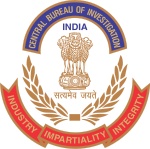Heartened by SC ruling, CBI to unleash bunch of stuck probes into officials
07 May 2014
The Supreme Court ruling nullifying the law under which the Central Bureau of Investigation needs government permission before investigating top bureaucrats has come as a shot in the arm for the agency, where reportedly over a dozen cases are piled up for lack of permission to question the government officials concerned. These officials are of the rank of joint secretary and above.
 That hurdle is now removed, with the Supreme Court verdict rendering the requirement for approvals to probe senior bureaucrats for corruption ''invalid'' and ''unconstitutional''.
That hurdle is now removed, with the Supreme Court verdict rendering the requirement for approvals to probe senior bureaucrats for corruption ''invalid'' and ''unconstitutional''.
According to a Business Standard report, the CBI says the move will ''expedite a number of investigations''. This is a way towards greater operational autonomy for tme CBI, too
''It puts much more responsibility on us, that no innocent civil servant is harassed or prosecuted,'' CBI director Ranjit Sinha said after the verdict on Tuesday.
The CBI is hoping to move faster on its National Spot Exchange probe. It wanted to question the chairman and managing director of the state-owned Minerals and Metals Trading Corp (MMTC) in the case, but could not obtain permission from the commerce ministry. The agency had registered a case in the matter on 13 March.
Of the cases pending approval, 66 per cent are registered complaints, and the rest are at the preliminary enquiry stage. The case where approval is pending for the longest time, since January 2013, is a railways-related probe.
''We did not mind seeking permission, but to get it from the interested party itself is not fair to the probe. Instead, we proposed that a panel comprising the cabinet secretary, the department concerned and the CBI director should review such applications,'' a senior official said.
In the past, investigations have been delayed for want of such permits in cases like the coal scam. The agency could not question H C Gupta, former coal secretary, in connection with the Jindal Steel & Power first information report (FIR) for several weeks, as permission was denied. Gupta was questioned after he stepped down as a member of the Competition Commission of India.
There are more such examples, such as the CBI wanting to question T K A Nair, advisor to Prime Minister Manmohan Singh, and other joint secretaries at the Prime Minister's Office (PMO) in the coal block allocation scam. Later, CBI reached Nair through a written questionnaire.
According to the Prevention of Corruption Act, under Article 6A, the CBI is supposed to seek the permission of the immediate senior bureaucrat when it wants to question an officer in the rank of joint secretary and above. For secretary-rank officials, the go-ahead has to come from the minister concerned.
No such permission is required to question a minister. But the agency is supposed to inform the Speaker or the Chairperson of the House and the PMO if in a cabinet minister is involved. For instance, in the bribe-for-post scandal in the railways, CBI had approached the PMO before questioning the then rail minister Pawan Kumar Bansal, who had to subsequently step down.
Next on the wish list of CBI is to hasten the sanctions to prosecute. ''Government can sit on it for as long as it wants at present. If a deadline can be put to it, unnecessary delays won't happen,'' said a CBI official.



















